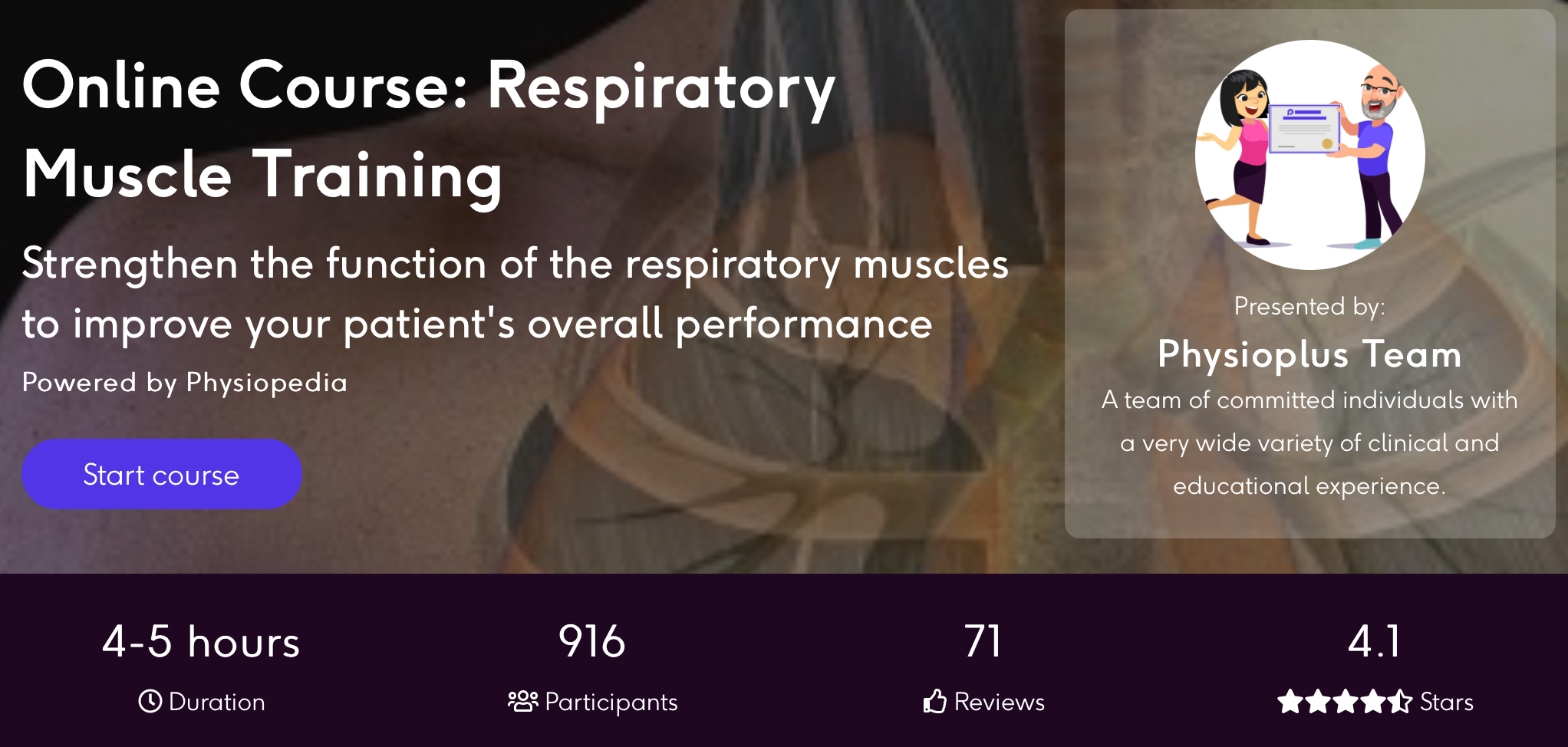Cardiovascular disease is one of the most common non-communicable diseases worldwide and leads to millions of premature deaths.
It is well known that post-operative pulmonary dysfunction is a common complication for patients undergoing cardiac surgery. Increased work of breathing, ineffective cough and sputum retention are all common reasons for these patients to need to see a physio.
Learn to use Inspiratory Muscle Training
Many of these complications are caused by respiratory muscle dysfunction which is a consequence of internal mammary artery graft, chest drain placement or phrenic nerve disruption. The impact on the respiratory muscles can be long standing with a possible 4-5% reduction in pulmonary function after 1 year.
Early exercise, ACBT and diaphragmatic breathing exercises are traditional interventions which are used to combat the loss of pulmonary function and there is growing evidence to support pre-habilitation with inspiratory muscle training (IMT) forming a part of this.
But is IMT a useful post-operative treatment tool too? A new systematic review published in Annals of Rehabilitation Medicine aims to find out.
Methods
Overall this was a systematic review with a solid methodology on paper. It both adhered to PRISMA guidance and was pre-registered on PROSPERO however the full search strategy is unavailable.
In total six databases were searched including PubMed, PEDro, Cinahl, WoS, CENTRAL and EMBASE however in the protocol it states only three of these however if a protocol is going to be altered this is likely of limited concequence.
The databases were searched from inception to June 2020 and was limited to articles published in English. The key words used were:
“cardiac surgeries,” “cardiac surgical procedures,” “inspiratory muscle training,” “respiratory muscle training,” “preoperative physiotherapy,” “preoperative care,” “respiratory muscle strength,” “CABG,” “coronary artery bypass grafting,” “valve replacement,” “heart valve replacement surgery,” “congenital disability,” “congenital disability correction,” “functional capacity,” and “cardiac rehabilitation.”
Randomised controlled trials which evaluated patients who underwent cardiac surgeries and were given inspiratory muscle training pre- or post-operatively were included within the review.
The outcomes that had to be assessed by the articles were FEV1, FVC, MIP, MEP and 6-minute walk test. Length of stay and incidence of post-operative complications were also monitored.
Screening and data extraction was performed by two authors with agreement by consensus. Risk of bias was assessed using the modified Downs and Black checklist however apart from a table summarising scores little about this was discussed.
IMT Appears an Effective Treatment Tool
In total five articles were included within the final review totalling 144 patients in the control groups and 149 in the intervention groups totalling 293.
From an intervention perspective PowerBreathe was used in two studies and Respironics used in another with all studies investigating the effects after CABG or valve replacements.
Treatment duration varied from 6 days post-op to 12 weeks with the average MIP being 40% increasing loads progressively throughout duration.
Those who used inspiratory muscle training devices saw a mean increase in 78.05m in their 6 minute walk distance. They additionally saw a 3.47% increase in FRC and 0.47 in FEV1/FVC ratio.
Maximal inspiratory pressure also increased by 4.70 cmH2O with no difference in maximal expiratory pressure. In terms of length of stay the IMT group had an average of 1.82 days less in hospital.
It is important to consider that only five articles were included with analysis and pre-op and post-op inspiratory muscle training was unable to be compared. There is also no consensus on training intensities and duration.
That being said considering the low risk to the patient by participating in inspiratory muscle training it appears to be a useful training tool for those undergoing cardiac surgery pre- or post-operatively.
